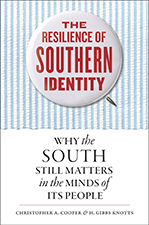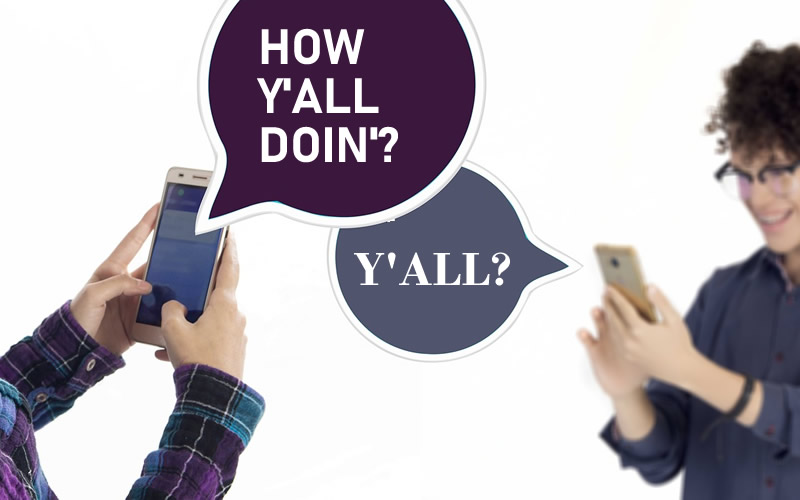By Andy Brack, editor and publisher | My Southern daughters have been making fun of my Southern accent.
They giggle when they hear me say words like yellow, mosquito, potato, pillow or can’t.
 Of course, the right way to pronounce these words, despite what these ungrateful children say, is YELL-ah, muh-SKEE-tah, pu-TAY-tuh, PILL-ah and KAINT.
Of course, the right way to pronounce these words, despite what these ungrateful children say, is YELL-ah, muh-SKEE-tah, pu-TAY-tuh, PILL-ah and KAINT.
They go into a full-blown tizzy, though, with one word – water, which is correctly pronounced “WART-err.” At least that’s what I learned from my mother, born and raised in Arkansas. Other pronunciations can be blamed on my dad, reared in middle Georgia.
I am, like many Southerners, guilty of dropping the last syllable of words and blending them into other words, occasionally turning one or two syllables into three or four. For generations, the distinct Southern twang has been a reflection of our different culture, a different way of life.
What’s disturbing, particularly from my daughters, is how they don’t have as much of an accent or regional dialect. This possible loss of the region’s distinctive sounds seems to be happening all over with younger folks.
Blame it on more outsiders moving in with harsher sounds that may be taming the thick Southern linguistic soup. Blame it on the pervasiveness of global media, which expose Southerners to sounds of the world, not just the sounds of people down the street. Blame it on TV, where news anchors must have some special school to teach them all to sound like they came from the same Midwestern farm town.
Some might argue an erosion of the Southern accent could cut down on cliched perceptions of Southerners as lazy, thick-headed dolts.
“Loose grammar and indulgent vowels mean the Southern accent is often associated with stupidity, says Jennifer Cramer of the University of Kentucky,” according to a 2014 story in The Economist. “Two in five Americans think it makes the speaker sound ‘uneducated.’”
A 2018 study by political scientists at the College of Charleston showed Americans found politicians with Southern accents to be less smart, honest or competent as those who sound different. “Candidates with a Southern accent are viewed more negatively, and they are thought to hold more conservative policy positions, than candidates with no discernible accent,” the February 2018 study discovered.
Maybe any erosion of the Southern accent in a region that is growing by leaps and bounds will lead to an unforeseen benefit – that Southerners might start to be taken a little more seriously.
But who wants to lose the way we talk? When was the last time, Bill Segars of Hartsville observed this week, you were asked to talk more like a Northerner?
“Southern talk — people like to listen to it,” Segars said. They like the soft, lilting sounds they hear, just as Americans often love just listening to an English or Australian accent.
A 2013 study of 2,000 people by Cupid.com found the Southern accent to be the country’s most attractive. According to a press release, “So what is it that makes the Southern accent so appealing to members of the opposite sex? When it comes to romance, most of us dream of long lazy days in the sun, epic sunsets and, ahem, rolls in the hay.”
 In the 2017 book titled “The Resilience of Southern Identity,” some of the same authors involved with the College of Charleston study found the region’s distinctiveness has a stronger grip than the small sample offered by daughters who make fun of their dad.
In the 2017 book titled “The Resilience of Southern Identity,” some of the same authors involved with the College of Charleston study found the region’s distinctiveness has a stronger grip than the small sample offered by daughters who make fun of their dad.
“If ‘the South’ as a concept were an easy idea to kill off, it would be long dead,” political scientists Christopher Cooper and Gibbs Knotts wrote. “Instead, Southern identity is resilient. It may change form, but if history is any guide, people will continue to search for distinctiveness and originality, even in the face of rapid change.”
So maybe the Southern accent isn’t fading as much as it’s just changing how it is manifest.
As a daughter ran to catch the school bus this week, she said, “Have a good meeting,” with the last word pronounced “MEET-n.”
Then she stopped, turned around, looked and said, “Oh no, it’s happening to me, too.”
Advantage, dad.
- Have a comment? Send to: charlestoncurrents@gmail.com




 We Can Do Better, South Carolina!
We Can Do Better, South Carolina!
























